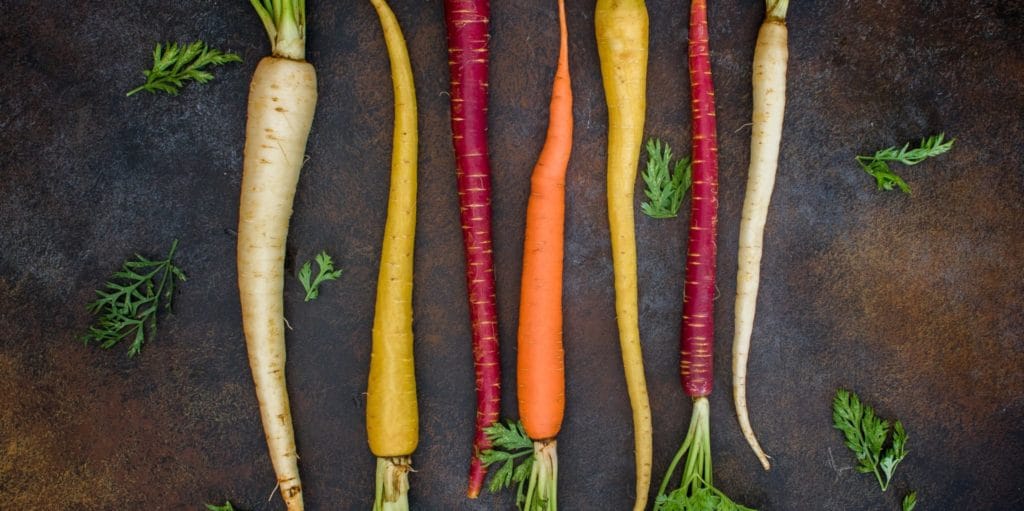Carotenoids
Many carotenoids act as antioxidants
Carotenoids belong to the secondary plant substances and are found in many plants, but partly also in animals or animal products (e.g. egg yolk), as well as in the human body (only a limited number in appreciable quantities). They give plants their characteristic bright yellow to red colours. There are about 800 different known carotenoids. The most common is beta-carotene, a yellow pigment that gives carrots their colour, among other things. Beta-carotene is converted into vitamin A in the human organism and is therefore also called provitamin A (read more under“beta-carotene“). Many carotenoids act as antioxidants (read more under“Antioxidants“), i.e. they can intercept and prevent the generation of free radicals and thus limit oxidative, i.e. free radical-generated damage in the body. Other carotenoids are e.g. lycopene, lutein, zeaxanthin, alfacarotin, betacryptoxanthin.
